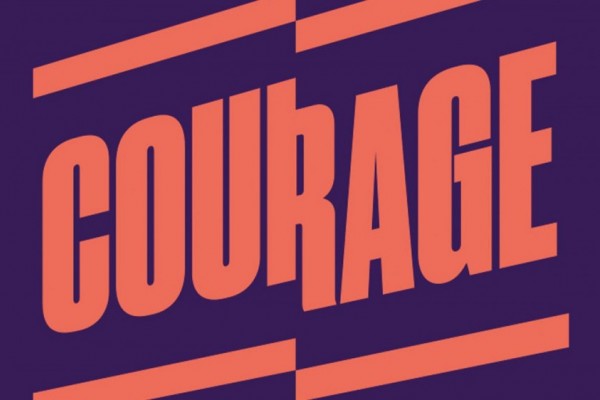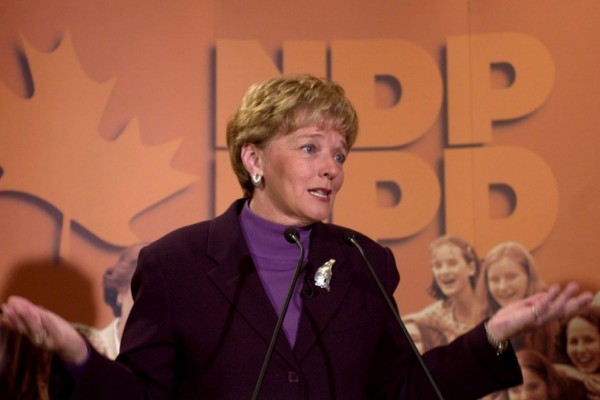Fourth NDP leadership debate: New format sparks real debate and discussion

Charlie Angus and Jagmeet Singh. Photo courtesy of CTV News.
This past Sunday in St. John’s, the Federal NDP held its fourth leadership debate. The last one brought in two new contestants in Jagmeet Singh and Pat Stogran, the latter of whom has dropped out, leaving a field of five. Since the last debate, events beyond the race have brought new dynamics, none bigger than the strong performance of the British Labour Party under its unabashedly socialist leader Jeremy Corbyn, who against the prognostications of the media and Labour Party ‘pragmatists,’ gained 30 seats and eliminated the Conservatives’ parliamentary majority. In the days following, Labour is polling at 45% support, and has signed up thousands of new members. It was a smashing performance, and many on social media felt that Corbyn provided a lesson for the Canadian left: that a democratic socialist platform can attract significant support, especially from young voters. These events, combined with the example from Bernie Sanders last year, are clearly influencing how the NDP leadership hopefuls are approaching both policy and messaging.
While Westminster might feel awfully distant from Canada, the CCF-NDP and Canadian labour movement has been deeply influenced by Britain. Much like how the Labour Party provided examples to the CCF-NDP last century, so too can Corbyn provide a basic roadmap towards socialist relevance today. As with the previous recaps, we will look at each candidate individually before offering general closing remarks:
Guy Caron
Caron set the tone in this debate by attacking, in the opening statement, the weaknesses in his competitors’ campaigns, policy, and messaging. He perceived a lack of specificity from them, and was keen to draw this out. After all, Caron argued, if specificity isn’t expressed now, the Liberals and Conservatives will expose this lack of rigour later. Caron is at his strongest when he exudes a ‘policy wonk’ image, and he did exactly this on Sunday. He made it clear that electoral reform would be his first priority, recapped his Basic Income program, and challenged his rivals to explain not just what they wanted to do, but how they would do it in a fashion to build towards beating Trudeau and Scheer in 2019. He faced challenges from Ashton and Angus on the implementation and ideology of a Basic Income, and while I share those concerns, Caron stood his ground quite well. This was clearly his best performance thus far.
Peter Julian
As I’ve said previously, Julian has the traditional pieces of a strong campaign—a foothold in multiple regions, fairly strong caucus support, an excellent level of bilingualism—but has struggled to put it all together, lagging in both fundraising and popular support, even though he joined the race first. One of my suggestions was to better emphasize his environmental platform, which could be a real winner among segments of the party’s membership. He did just that in St. John’s. Julian consistently addressed climate justice as vital, spoke of green energy as a boon to job creation, and attacked rivals who were unclear on pipeline questions, chief among them Singh. Julian still has to address how he tends to blend in with the background as debates progress, but he has his message, and can carve out a base of support with it, especially if others take a more neutral or positive stance on pipelines.
Charlie Angus
Angus leads the race in fundraising and polling, and has given strong and steady performances thus far. Therefore, it was unsurprising to see that in the Question Period of this debate—where candidates could ask a question to a specific opponent—Angus tied with Singh for the most times targeted. This indicates that others are trying to reel him in from the front. I sense a potential conflict for Angus developing, however. Simply, he is running a campaign in two natures right now, acting as both the irreverent outsider and pragmatic insider. Angus never lets an opportunity go by to speak in folksy terms, or remind people that he’s a punk rocker, but he spent much of this debate questioning the practicality of his opponents’ views, often as they pertained to things like free post-secondary education and Basic Income. Angus said he was aiming for pragmatic change rather than setting up false hopes. The challenge for Angus will be to synergize these two images, to be both the social justice rocker and the sober arbiter of ‘reasonable’ progress. If he fails to do so convincingly it will spell trouble, but if he’s successful he will have adopted a Jack Layton-like persona that no one else in the race can really capture.
Niki Ashton
When it comes to the impact of Corbyn on the Canadian left, Ashton is the likeliest to benefit. She has tied herself closely to campaigns like his and Sanders’, and speaks in similar terms to Corbyn around the nationalization and democratization of the economy. She also, like Corbyn and Sanders, has made a concerted effort to tailor her program and outreach to Millennials. This includes her work around intergenerational justice in the workplace, but also free tuition—something she defended confidently when challenged by Angus in this debate. But Ashton isn’t solely focused on youth issues, and is also trying to link herself to the legacy of Tommy Douglas and Medicare via a proposal for a national Pharmacare program. Ashton was again strong in this debate, combining both a clarity in her speech with a fiery passion to offer real change to Canadians. If one believes that recent lessons are signalling the need for the NDP to move leftward with socialist policies, Ashton is quickly becoming the standard-bearer. While she wasn’t among the most targeted in the Question Period segments, meaning others might not see her as a primary threat, she appears to have momentum on her side. This is all on top of how her recent pregnancy announcement is highlighting the historical nature of her campaign.
Jagmeet Singh
If there was one person who improved by leaps and bounds since the previous debate, it was Singh. Whereas last time Singh was seemingly flat-footed, he came to this contest battle-ready. Before the debate, he outlined a new policy suite, which contains a radical reconfiguration of the tax system, including new brackets at the upper end, along with the imposition of an estate tax and an increase to capital gains taxes. And Singh needed to be sharp, because along with Angus, he was the most targeted in the Question Period, giving off a sense from the field that he has become an instant contender. In general, Singh handled this quite well, but the one issue—and it is a potentially glaring issue—is his lack of clarity on the Kinder Morgan pipeline. Here, both Ashton and Julian effectively attacked Singh, and while he did announce impending policy on this issue, he seemed to be leaving himself room to support pipelines as a means of fostering a relationship with Rachel Notley’s Alberta NDP. This is a bit of a gamble, and could put him in a tricky position given the federal caucus position against Kinder Morgan, along with the incoming NDP-Green coalition government in BC. Then again, the gamble might payoff if the anti-pipeline contingent is divided, and he can amass broad support on his commitment to ‘not divide’ the interests of various NDP sections.
This debate was the most substantive thus far, due both to the contestants getting more comfortable, but also to the formatting. This Question Period segment is a strong one, and should be a fixture of every debate henceforth. NDPers, and all prospective members, deserve as much information as possible on where the candidates stand, and as Caron aptly said, the hopefuls must push one another to substantiate their platforms, sharpen their messaging, and develop a roadmap for a successful leadership effort towards 2019.
Christo Aivalis, a member of the CD web committee, is an adjunct professor of history at Queen’s University. His dissertation examined Pierre Trudeau’s relationship with organized labour and the CCF-NDP, and has been accepted for publication with UBC Press. His work has appeared in the Canadian Historical Review, Labour/le Travail, Our Times Magazine, Ricochet and Rankandfile.ca. He has also served as a contributor to the Canadian Press, Toronto Star, CTV and CBC. His current project is a biography of Canadian labour leader A.R. Mosher.










